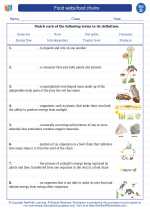Food webs/food chains -> decomposition
Decomposition
Decomposition is the process by which organic material is broken down into simpler substances. This natural process is carried out by microorganisms such as bacteria and fungi, as well as larger organisms like earthworms and insects. Decomposition is an important part of the nutrient cycle, as it releases nutrients back into the environment for use by other living organisms.
Factors Affecting Decomposition
Several factors can affect the rate of decomposition, including:
- Moisture: Decomposition occurs more rapidly in moist environments, as water is essential for the activities of decomposer organisms.
- Temperature: Warmer temperatures generally lead to faster decomposition, as microorganisms are more active in higher temperatures.
- Oxygen: Aerobic decomposition, which occurs in the presence of oxygen, is faster than anaerobic decomposition that occurs in the absence of oxygen.
- Organic Matter Quality: The chemical composition of the organic material being decomposed can affect the rate of decomposition. For example, materials high in lignin, such as wood, decompose more slowly than materials with simpler chemical structures.
Importance of Decomposition
Decomposition plays a crucial role in ecosystem functioning and nutrient cycling. It helps to break down dead organisms and recycle nutrients back into the soil, making them available for use by plants and other living organisms. Without decomposition, nutrients would become locked up in dead organic matter and unavailable for recycling, leading to nutrient depletion in ecosystems.
Study Guide
Here are some key points to remember about decomposition:
- What is decomposition?
- What are the factors that affect the rate of decomposition?
- Why is decomposition important for ecosystems?
Be sure to understand the role of microorganisms, the nutrient cycle, and the environmental factors that influence decomposition. You may also want to explore specific examples of decomposition in different ecosystems, such as forests, grasslands, and aquatic environments.
Remember to review and understand how decomposition contributes to the overall balance of nutrients in ecosystems, and how human activities can impact this natural process.
[Decomposition] Related Worksheets and Study Guides:
.◂Science Worksheets and Study Guides Fourth Grade. Food webs/food chains
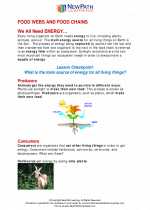
 Activity Lesson
Activity Lesson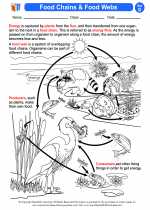
 Worksheet/Answer key
Worksheet/Answer key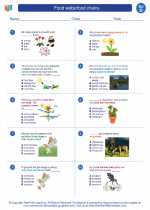
 Worksheet/Answer key
Worksheet/Answer key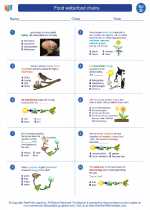
 Worksheet/Answer key
Worksheet/Answer key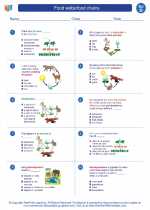
 Worksheet/Answer key
Worksheet/Answer key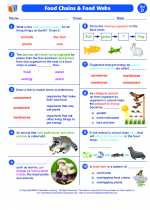
 Vocabulary/Answer key
Vocabulary/Answer key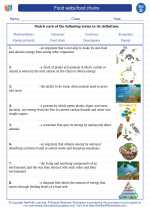
 Vocabulary/Answer key
Vocabulary/Answer key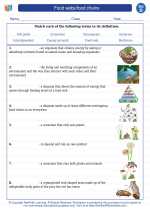
 Vocabulary/Answer key
Vocabulary/Answer key